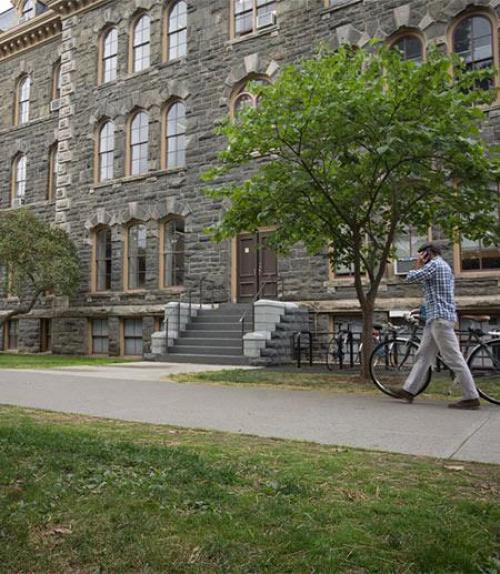Cornell will host the Conference in Laboratory Phonology (LabPhon 15), an international meeting for researchers taking experimental approaches to the study of human speech sounds, July 13-17.
The conference theme, “Speech Dynamics and Phonological Representation,” will address sounds in human language as part of a linguistic, cognitive and communicative system.
“The core idea behind the conference and the growing community of laboratory phonologists is that speech is best investigated through experimental approaches, and integrated and interdisciplinary methodologies,” said Abby Cohn, conference organizer and professor of linguistics.
“We are delighted to host an interdisciplinary conference like LabPhon 15, which fits so well with Cornell’s dynamic research in linguistics and related fields such as neuroscience, psychology, cognitive science and information sciences,” said Gretchen Ritter, the Harold Tanner Dean of Arts and Sciences, who will deliver opening remarks at the conference.
Four of the last five LabPhon meetings have been hosted outside of the United States, said Sam Tilsen, conference organizer and assistant professor of linguistics. “We’re honored to bring the conference back to the U.S.,” he said.
In the past, the most participants of the LabPhon meetings have been from North America and Europe. Recent conferences have seen more participants from Asia, New Zealand and Australia, reflecting the global interest in the field and the prestige of the conference, Tilsen said.
“We will have over 300 participants this year, making this the largest ever Conference on Laboratory Phonology,” he said.
The conference will address issues such as the temporal dynamics of perception, and the roles of perception and production in relation to social network dynamics.
The conference themes focus attention on recent trends in both empirical and theoretical approaches to studying speech, emphasizing changes in phonological representations on a variety of timescales, from utterance timescales, to developmental and lifespan timescales, to historical timescales, Tilsen said.
“By emphasizing dynamics on diverse scales, the conference encourages laboratory phonologists and researchers in related fields to engage with ways of thinking that are more common in some of the less closely allied biological and physical sciences,” he said. “The strengthening of connections between laboratory phonology and the social sciences on one hand and biological and physical sciences on the other, through emphasis on dynamics, is crucial for the future development of our field.”
Each of the conference’s themed sessions will feature an invited speaker and invited discussant.
“Our selection of invited speakers supports the increased participation of early career scholars in the LabPhon research community and strengthens the visibility of outstanding research done by women scholars,” Cohn said. “Gender balance was an important consideration for us.”
To register for the conference, visit www.labphon.org/labphon15. Sponsors include the National Science Foundation, the Institute for the Social Sciences, Mario Einaudi Center for International Studies, the Cognitive Science Program, Cornell Computing and Information Science, the Cornell Phonetics Lab and the Department of Linguistics.
Linda B. Glaser is a staff writer for the College of Arts and Sciences.




